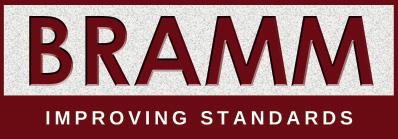
6 minute read
We winged it and it worked
Or how 9 ½ Authorities worked together to battle the Coronavirus
The AGMA (Association of Greater Manchester Authorities) Bereavement Group was set up over 15 years ago to enable the managers in Greater Manchester to share information and came into its own over best value.
The group now consists of nine of the ten authorities and also includes St Helens because… well it just wouldn’t be the same without Sonia..
Periodic meetings continued for a few years before fully re-establishing itself about 5 years ago with regular meetings sponsored by our partners in the industry.
Word spread and we began to attract authorities from beyond Greater Manchester so we evolved into the NW Bereavement Managers Group which in turn led to a working partnership with the ICCM to form the NW branch.
Behind the meetings was the group email which enabled people to tap into the wealth of experience across the region and ask questions and get assistance with any issues. This has been invaluable.
Whilst the larger group took on a life of its own, the AGMA group grew stronger and closer in the way we worked together. The emails were added to by a WhatsApp group and what started out as a group of colleagues has become a group of friends.
As the virus started to take hold we took the decision that as a group we would work together and stand together. This meant sharing information and plans and agreeing that we would be consistent in what we were asking from the funeral directors.
The biggest issue we faced was that our “forgotten“ services were now being pushed to the fore and everyone suddenly became an expert in bereavement services deciding how services should be run without the courtesy of liaising with the experience of existing bereavement services managers.
As bereavement professionals, whose aim is to support families through the worst time of their lives, to suddenly having to shut our offices and not be permitted to work with the bereaved in our community, was very difficult as it went against everything we are here to do.
We did a quick count up and established that between the service managers across the 10 authorities we had 252 years service in bereavement which even with our addled brains could work out this is an average of 25.2 years each, which is a pretty impressive knowledge bank so we thought we knew what we were talking about.
(Mike Gurney - Tameside) As you can see.. This guy makes up most of those years..
We were given figures of expected deaths to give us sleepless nights
Blue – Predicted deaths (peaking at just below 400), Yellow – Covid-19 predicted deaths, Black – actual deaths registered in one Borough (peaking at 125), Green actual deaths of residents in Borough, Red – Actual cremations (peaking at 75), Brown – actual burials (peaking at 20).

Figures were broken down week by week and the predictions across each authority highlighted the gaps in reality and the contingency plans and all sorts of scenarios were spoken about. Fortunately none of them came to fruition.
As issues arose such as staffing levels, closure of cemeteries, offices and toilets, machinery malfunctions etc plus the ever increasing number of mourners, we worked through them together.
With social distancing some chapels could accommodate larger numbers than others. We agreed to work to the smallest chapel size so that no one would get swamped by extra bookings and reduced the risk of families trying to travel across greater Manchester because more mourners could attend. To put this in context, the distance between the crematoria at the widest points is only 25 miles north to south and 20 miles east to west and 14 crematoria within the catchment area so not significant distances to put people off travelling for that extra few mourners.

We therefore agreed to restrict attendance to 10 immediate family members.
To maintain consistency this was the same number for those at graveside.
There was a sudden increase in working groups being set up with input from all and sundry and demands for information on numbers of bookings (this was all retrospective and not what we had coming up which was confusing because surely you would need to see what was facing us not what we had already completed) and how we were dealing with certain aspects of the ever changing and totally undefined guidelines/regulations coming from Government.
Someone had the bright idea we could assist funeral directors by allowing them to submit any questions they had and expected us to work miracles by answering them... when has anyone ever managed to solve all funeral directors issues?
We may have struggled at times with various issues but the unity has given us confidence in how we are facing the challenges.
Overall by sticking to this united front, we have found that we all rose in numbers proportionately rather than some authorities taking the brunt of them by allowing additional mourners etc so were just about able to cope. Having the support network has helped maintain our sanity. It took until week 3 before someone said “is anyone else worried?” And the flood gates opened and once again we all knew we were on common ground.
The humour has not stopped flowing and the ability to laugh at ourselves and the situation we found ourselves in has helped to combat the frustration.
One of the biggest challenges was that of IT when all of a sudden we had to become experts in Zoom, Google Meets, Teams and countless other platforms we had never heard of let alone used. Now you needed to take account of where you positioned your camera, what people could see or hear in the background and also what part of you was actually on screen for others to see. Getting someone to screen share became a new form of entertainment in itself as we tried to explain the process as someone was clicking everything in a vain attempt to get the file on screen.

The Zoom meetings, emails and WhatsApp groups became the new norm and were a massive help to us all but they also allow us to check in on with each other and you notice when people go quiet or their behaviour changes. A quick phone call or email to make sure all is ok works wonders. We know because we all made and received quite a few calls.
We decided to have a weekly quiz night – no talking shop, just the opportunity to get together and have a laugh. These have been a very important part of our working week and hopefully we will maintain them as we move forward.
We are so lucky to have found ourselves in a situation where 10 such like-minded managers have become friends more than colleagues and work in tandem in the way we do.
We titled this article as "we winged it" which felt like we were at the start but looking back we don't believe we did. In the absence of leadership or guidance from above, the group pulled together magnificently and made tough decisions based on sound knowledge, experience, common sense and a pride in the service we all offer.
Instead of ducking issues and tough decisions in what really are unprecedented times: this group grabbed the bull by the horns and got stuck in. Maybe 'winging it' doesn’t give us all the credit we deserve.

We have survived wave one and are more prepared for the next one should it come our way. It has proven that working together is vital to maintain the service and also to preserve the last semblance of stability and mental health of the managers and staff.
Oh and the occasional bit of humour and stupidity goes a long long way too.







